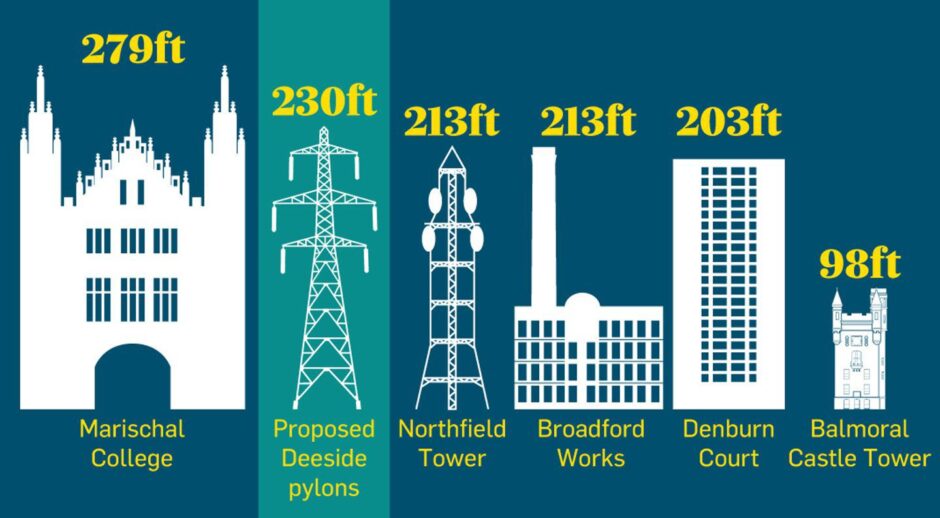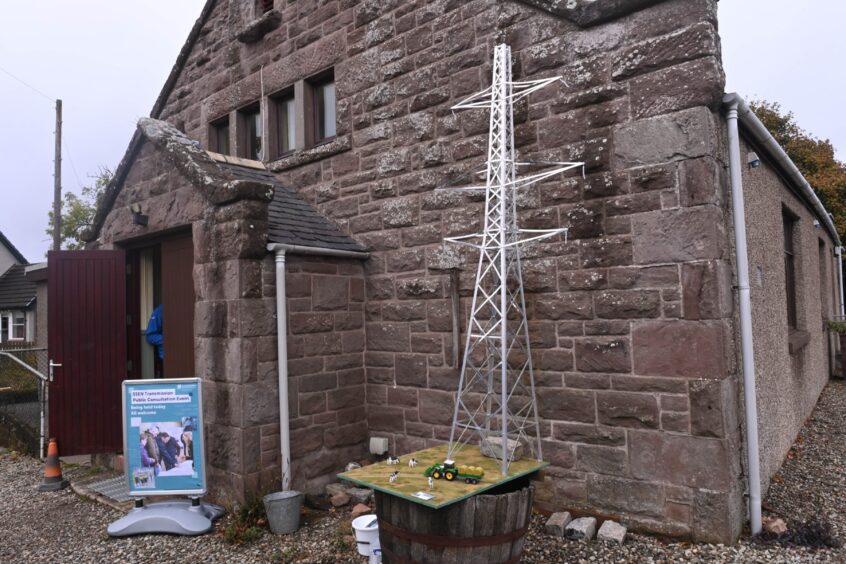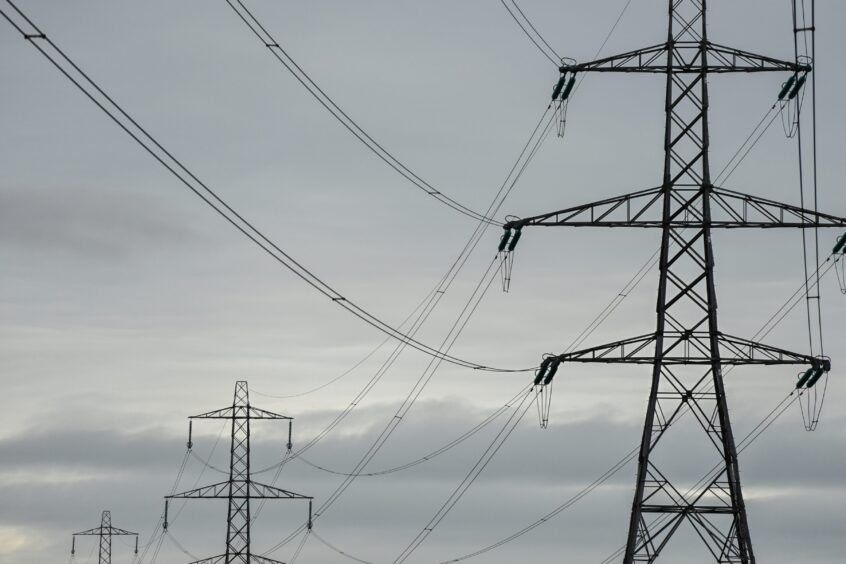Deeside Against Pylons has one objective: “No pylons”.
The group of campaigners from across Deeside are continuing their fight to stop pylons up to 230ft tall being built in their communities.
SSEN has proposed a 67-mile overhead route for its Kintore to Tealing 400kV Connection which local residents have said will “impact” their lives.
The proposed corridor goes through Kintore, Dunecht, Echt and Drumoak – near a number of homes and three primary schools.
The campaign group has argued the pylons will destroy “the beauty of the landscape” at an average of 187ft tall and positioned less than 1,000ft apart.
Some of the pylons will be as high as 230ft tall – twice the height of a normal pylon.
This is more than twice the height of Balmoral Castle Tower and taller than 22-storey tower block, Denburn Court.
Pylons could be constructed across Deeside
At their latest protest, residents raised concerns about the potential “health risks” associated with the power lines.
Campaigners of all ages gathered in Echt armed with homemade signs stating: “Stop SSEN monster pylons” and “Save Echt”.
Rachel Jack, a resident of the village, said her family is “heartbroken” by the proposals.
She added: “Living in the shadow of these monster pylons would irreversibly change our home from being our place of safety. I am very worried about the potential health implications for the children.
“Looking out of our kitchen window at these pylons, every day, would be a constant reminder of how this has been imposed on us by SSEN without any meaningful consultation, and certainly without our consent.”
In response, SSEN has said all guidance in relation to electric and magnetic fields (EMFs) is “strictly” followed.
Early stages of project
Deeside Against Pylons has argued there are alternative technologies, such as offshore wind farms, which could be used to transmit power.
The pylon route proposed by SSEN is part of the Pathway to 2030 project which involves a £20 billion upgrade to the network infrastructure for a clean energy transition.
The project is still in the early stages with in-person and online consultations being carried out within communities.
Chairman John Rahtz said: “In this once-in-a-generation grid upgrade, we are concerned that policies around the impacts on health and wellbeing are significantly out of date.
“The TKUP overhead line will carry 6GW of power, far greater than anything used in Scotland before and increasing the exposure level to electromagnetic forces.
“Yet, there is no official recognition of the recent research into the health risks associated with this level of electromagnetic field exposure.”
Concerns about health risks
The campaign group has also raised concerns about the lack of research into the impact of EMFs on mental health.
Mr Rahtz continued: “Policy has simply not kept up with latest research, so we are now the guinea pigs.
“Our communities feel that the North of Scotland is bearing a disproportionate cost for this short-sighted proposal which is driven by cost.”
The group has called on SSEN to reconsider its plans for the Deeside area and find a “better alternative”.
A spokesperson for SSEN Transmission spokesperson said: “We understand that some people are concerned about the perceived impact of EMFs and would like to reassure stakeholders that we strictly adhere to the guidance on EMFs set by the UK Government, which goes over and above established international guidance.
“We would also like to reassure stakeholders that the infrastructure being proposed for the Kintore-Tealing 400kV project is comparable to infrastructure that already exists elsewhere in Great Britain and across the rest of the world, with associated EMF levels being in line with that emitted by existing infrastructure.
“The UK Health Security Agency and Department of Health has a remit to review new research in this area and ensure that current guidelines and policies reflect the results of that research.”






Conversation